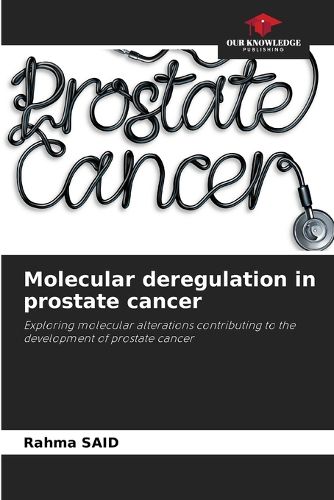Readings Newsletter
Become a Readings Member to make your shopping experience even easier.
Sign in or sign up for free!
You’re not far away from qualifying for FREE standard shipping within Australia
You’ve qualified for FREE standard shipping within Australia
The cart is loading…






This title is printed to order. This book may have been self-published. If so, we cannot guarantee the quality of the content. In the main most books will have gone through the editing process however some may not. We therefore suggest that you be aware of this before ordering this book. If in doubt check either the author or publisher’s details as we are unable to accept any returns unless they are faulty. Please contact us if you have any questions.
Detailed analysis of gene and epigenetic expression in prostate cancer patients reveals specific molecular abnormalities associated with this pathology. These alterations are responsible for the deregulation of cell growth and resistance to programmed cell death, essential features of cancer. The discovery of unique molecular profiles in patients opens up prospects for the development of personalized treatments.
$9.00 standard shipping within Australia
FREE standard shipping within Australia for orders over $100.00
Express & International shipping calculated at checkout
This title is printed to order. This book may have been self-published. If so, we cannot guarantee the quality of the content. In the main most books will have gone through the editing process however some may not. We therefore suggest that you be aware of this before ordering this book. If in doubt check either the author or publisher’s details as we are unable to accept any returns unless they are faulty. Please contact us if you have any questions.
Detailed analysis of gene and epigenetic expression in prostate cancer patients reveals specific molecular abnormalities associated with this pathology. These alterations are responsible for the deregulation of cell growth and resistance to programmed cell death, essential features of cancer. The discovery of unique molecular profiles in patients opens up prospects for the development of personalized treatments.